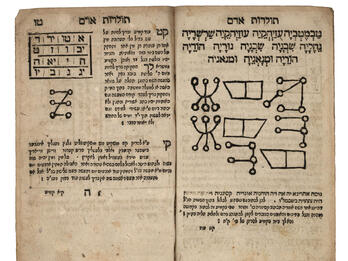Shabbetai Tzvi
Shabbetai Tzvi was the central figure of the most momentous messianic movement in Jewish history since the fall of the Second Temple, Sabbateanism. A gifted student, as an adolescent Shabbetai Tzvi embarked on the study of kabbalah, leading a life of abstinence and solitude. His moods swung between great lows and highs (illuminations): during the latter phases he committed strange acts contrary to religious law. In 1648, he declared himself to be the Messiah. His strange behavior at first aroused compassion but he was eventually banished from his hometown of Smyrna and subsequently from other communities. He married a woman named Sarah, who was orphaned during the 1648 uprisings. In 1662, he settled in Jerusalem and later traveled to meet Nathan of Gaza, who had already seen in a vision that Shabbetai Tzvi was the Messiah. In 1665, encouraged by Nathan, Shabbetai Tzvi declared himself Messiah, quickly amassing followers throughout North Africa and Europe. It was widely believed that 1666 would be the apocalyptic year. However, in that same year, Shabbetai Tzvi was arrested by the Ottoman authorities and, threatened with death, converted to Islam. He was abandoned by all but his most faithful followers, yet the Sabbatean movement continued to exist, causing controversies throughout the Jewish world.



